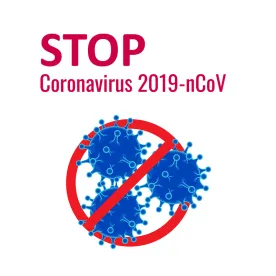After several days of intense negotiations, procedural votes and impassioned speeches on the Senate floor, a bipartisan compromise appears to have been reached on the third stimulus package known as the Coronavirus Aid, Relief, and Economic Security Act (CARES).
Final language of the bill passed the Senate, unanimously shortly before midnight, and it will now go before the House (expected Friday) and then the President. The $2 trillion package would provide direct assistance to state, tribal and local governments to help them address the coronavirus pandemic.
The CARES Act would also provide $377 billion to workers and small businesses through initiatives such as the Paycheck Protection Program to incentivize employers to maintain their payroll (eight weeks of cash-flow assistance through 100 percent federally guaranteed
loans). The bill would also extend $17 billion in emergency debt relief to a variety of SBA loan products.
The CARES Act would make provisions for loans, guarantees and other investments in support of eligible businesses, states and municipalities in amounts not to exceed $500 billion, pursuant to the Federal Credit Reform Act of 1990.
In particular, certain industries identified include:
-
$25 billion for passenger air carriers
-
$4 billion for cargo air carriers
-
$17 billion for “businesses critical to maintaining national security”
The balance of $454 billion is to be loaned to eligible businesses (without regard to the number of employees), states and municipalities. A number of criteria have been established for eligibility, including security of loan proceeds, restrictions on stock buy-backs and maintaining employment levels. In addition, only U.S.-domiciled businesses with employees primarily in the U.S. are eligible.
Businesses and large nonprofits may also be eligible to apply for loans from a 13(3) facility. These business entities will employ between 500 and 10,000, and also carry certain restrictions on eligibility and payback.
Additional highlights of the package include:
Health and Medical Response
-
$100 billion in direct aid to healthcare institutions
-
$45 billion for the Federal Emergency Management Agency (FEMA)
-
$16 billion for the Strategic National Stockpile of personal protective equipment, pharmaceuticals, and other medical supplies and equipment
-
$4.3 billion to support federal, state and local public health agencies
-
$3.5 billion for production of vaccines, diagnostics and treatments
-
$425 million to increase access to community mental health services
-
$200 million for the Centers for Medicare and Medicaid Services (CMS) to assist with nursing home infection control and virus response
Industry
-
$377 billion for small business programs and workers at small businesses
-
$562 million for the U.S. Small Business Administration (SBA) and small business programs
-
Alleviation of some federal tax burdens for businesses, including a refundable payroll tax credit for 50 percent of wages paid by employers to employees during closure due to COVID-19
-
Creation of a Pandemic Unemployment Assistance program for those not traditionally eligible for unemployment benefits, including the self-employed and independent contractors
State, Local and Tribal Governments
-
$1 billion for the Indian Health Service to support tribal responses to the pandemic
-
Nearly $1 billion for other tribal assistance, including $100 million for the USDA Food Distribution Program, $453 million for the Bureau of Indian Affairs, $69 million for tribal schools and higher education, and $300 million to HUD’s Indian Housing Block Grant program
-
$25 billion for the nation’s transit systems
-
$10 billion for airports
-
$7 billion for affordable housing and homelessness assistance programs
-
$6.5 billion for Economic Development Administration and related programs
-
$15.85 billion for veteran’s assistance
-
$400 million for FEMA grant programs, including the Assistance to Firefighters Grants (AFG) and the Emergency Management Performance and Emergency Food and Shelter Program
-
$850 million in Byrne-JAG grants for law enforcement and jails to purchase equipment, medical supplies and pay overtime
-
$450 million for The Emergency Food Assistance Program (TEFAP) to assist food banks
-
$400 million in election assistance related to the 2020 election cycle
Education
-
$30.75 billion for schools and universities to provide education services to students
-
$3.5 billion in funding for Child Care Development Block Grants to assist with child care for first responders and healthcare workers








 />i
/>i
